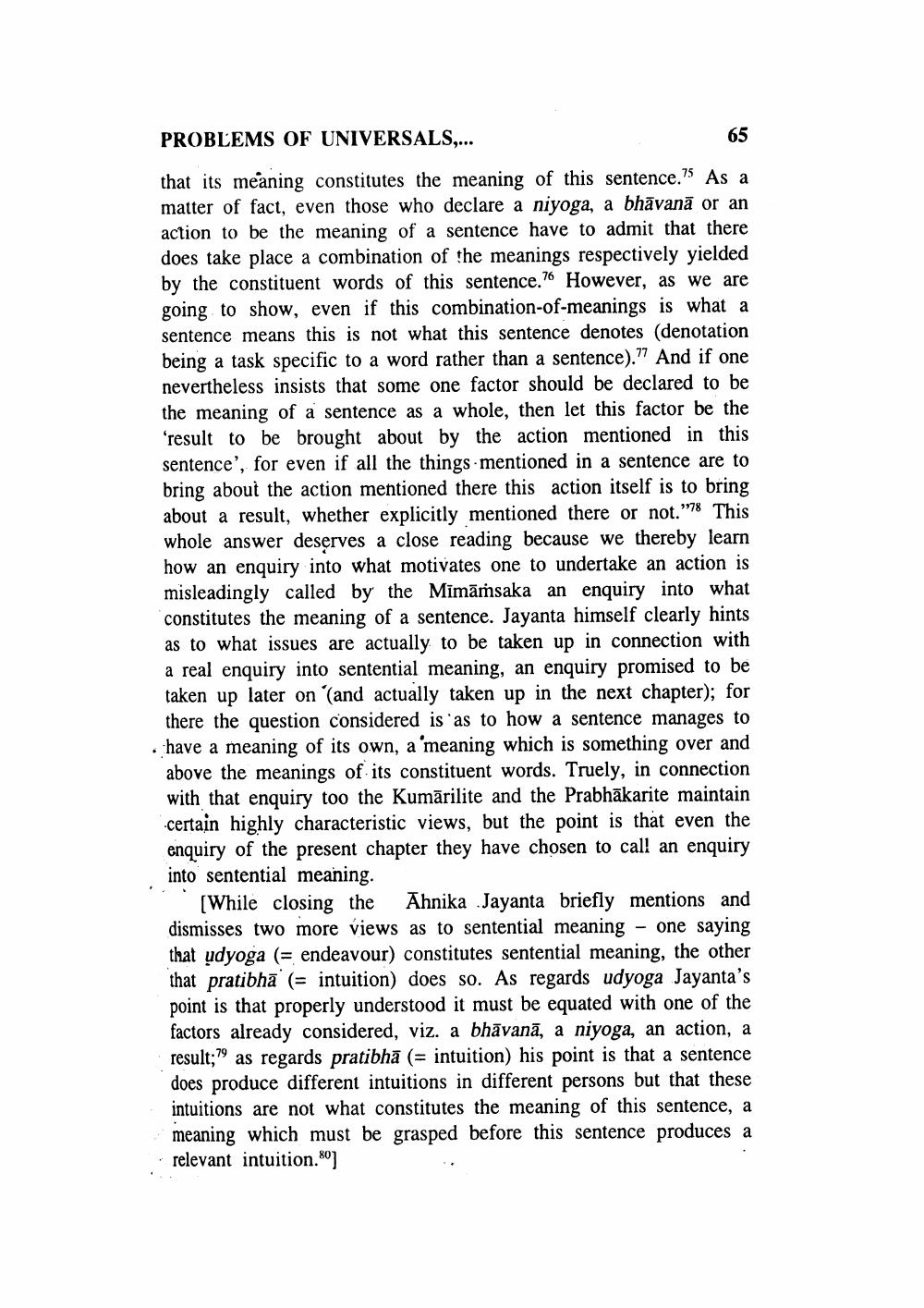________________
PROBLEMS OF UNIVERSALS,...
65
that its meaning constitutes the meaning of this sentence.75 As a matter of fact, even those who declare a niyoga, a bhāvanā or an action to be the meaning of a sentence have to admit that there does take place a combination of the meanings respectively yielded by the constituent words of this sentence.76 However, as we are going to show, even if this combination-of-meanings is what a sentence means this is not what this sentence denotes (denotation being a task specific to a word rather than a sentence)." And if one nevertheless insists that some one factor should be declared to be the meaning of a sentence as a whole, then let this factor be the 'result to be brought about by the action mentioned in this sentence', for even if all the things mentioned in a sentence are to bring about the action mentioned there this action itself is to bring about a result, whether explicitly mentioned there or not.”78 This whole answer deserves a close reading because we thereby learn how an enquiry into what motivates one to undertake an action is misleadingly called by the Mimāṁsaka an enquiry into what constitutes the meaning of a sentence. Jayanta himself clearly hints as to what issues are actually to be taken up in connection with a real enquiry into sentential meaning, an enquiry promised to be taken up later on (and actually taken up in the next chapter); for there the question considered is 'as to how a sentence manages to have a meaning of its own, a 'meaning which is something over and above the meanings of its constituent words. Truely, in connection with that enquiry too the Kumārilite and the Prabhākarite maintain -certain highly characteristic views, but the point is that even the enquiry of the present chapter they have chosen to call an enquiry into sentential meaning.
(While closing the Ahnika Jayanta briefly mentions and dismisses two more views as to sentential meaning - one saying that udyoga (= endeavour) constitutes sentential meaning, the other that pratibhā (= intuition) does so. As regards udyoga Jayanta's point is that properly understood it must be equated with one of the factors already considered, viz. a bhāvanā, a niyoga, an action, a result;79 as regards pratibhā (= intuition) his point is that a sentence does produce different intuitions in different persons but that these intuitions are not what constitutes the meaning of this sentence, a meaning which must be grasped before this sentence produces a · relevant intuition.80]




